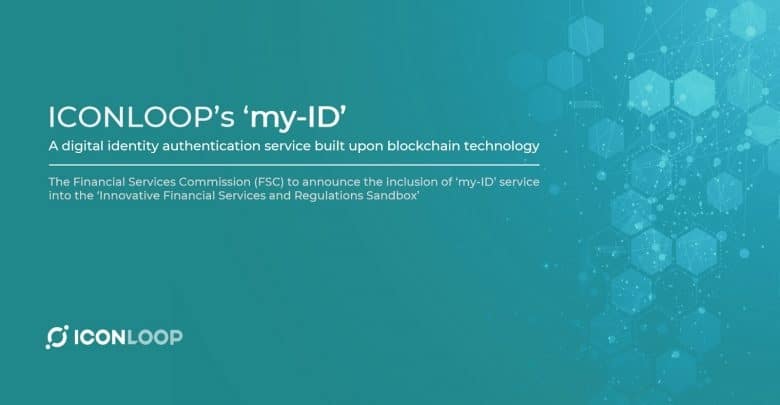South Korean government’s top budgetary controller, FSC (The Financial Services Commission), has reported the incorporation of ICONLOOP’s ‘my-ID’ administration into the ‘Innovative Financial services and Regulations Sandbox’ which was created under the special law named Financial Innovation Support Special Law. ICONLOOP utilizes an exclusive blockchain engine named as “loop chain.”
In a recent tweet,
The Financial Services Commission, South Korean government’s top financial regulator, has approved ICONLOOP’s blockchain-based digital identity authentication service codenamed “my-ID” into its Fintech Sandbox!
Advertisement
https://twitter.com/helloiconworld/status/1143789291610370049
my-ID is an advanced digital identity verification service based on blockchain technology. It takes into consideration ID authentication data such as ID, money related exchanges, verification done through mobile phones and so on, to be saved to the user cell phone so that they can reuse the data to open further records or access different services that require identification proof.
Moreover, this radically simplifies the burdensome procedures, like taking photos of one’s ID again and again and will enable consumers to accept different financial products in a much simpler way. Succinctly put, my-ID service is intended to improve the procedure, like taking photos of one’s ID again and again. Moreover, through my-ID, the ID confirmation data will be preserved after an initial once verification process at the financial institution.
ICONLOOP clearly says that an ID that has been endorsed by financial organizations to be fit for financial exercises is broadly observed as having passed the most stringent validation process. my-ID is relied upon to be arranged in a certain way, removing the danger of individual data leaks.
Advertisement
The self-made way refers to a strategy where one keeps the majority of their data until it should be imparted to a particular party, instead of transferring their data to a third authenticated person. This takes out the danger of a third party holding vast amounts of individual data and inadvertently leaking data, just as making it unfeasible for individuals to trade other people private data for money related returns. Moreover, this, as a result, restores the possession of personal data to their owners.







